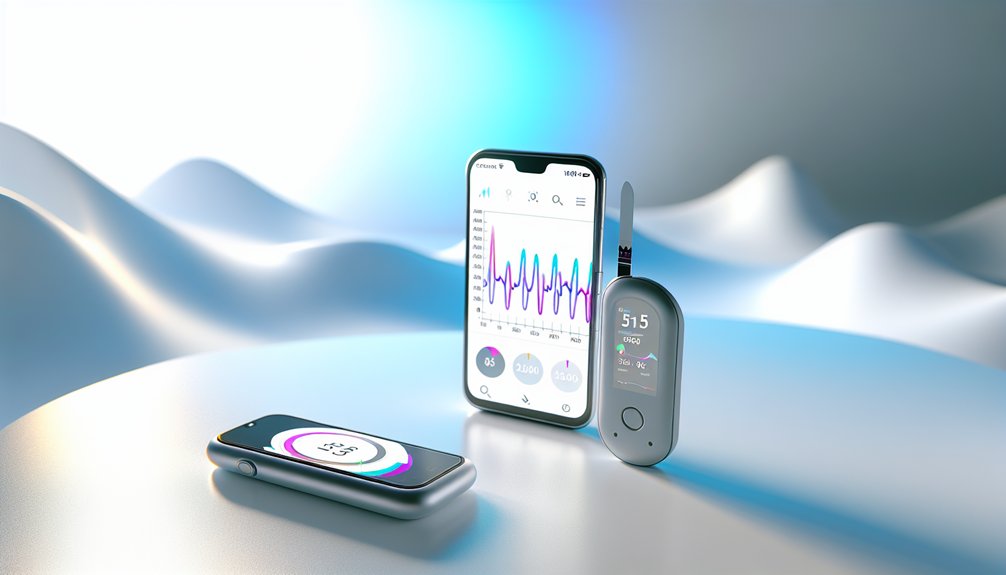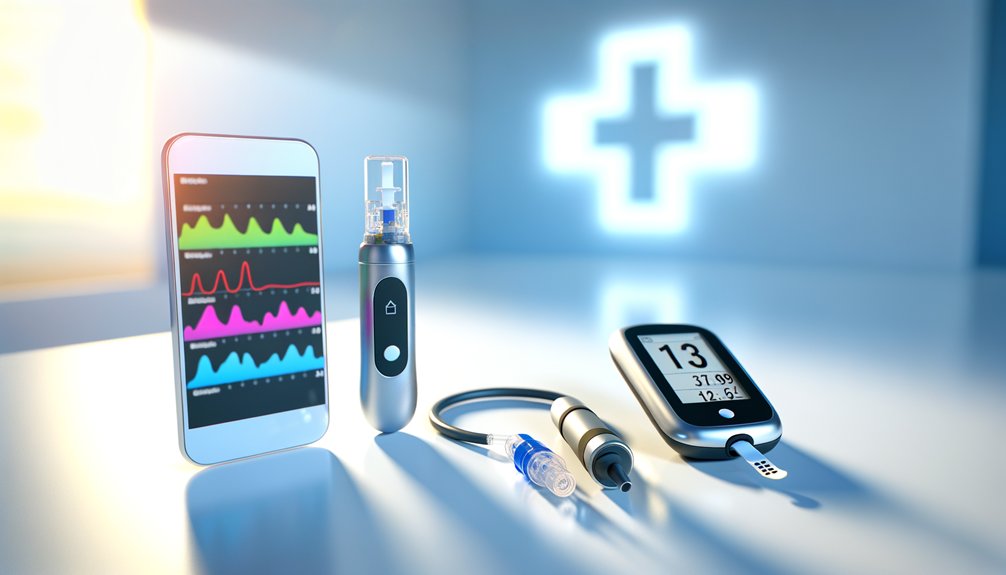Advancements in Type 1 diabetes technology are changing lives. Continuous Glucose Monitoring (CGM) systems now catch early warning signs of issues like diabetic ketoacidosis, giving families peace of mind. Automated insulin delivery systems make managing blood sugar easier, adjusting doses as needed. With AI tools predicting diabetes onset and personalized apps offering tailored support, daily management feels less intimidating. Each step brings a brighter future and renewed hope. Discover how these innovations are shaping the journey ahead.

As the sun rises on a new day, the world of Type 1 diabetes technology is brightening with hope and innovation. Patients and caregivers alike are witnessing remarkable advancements that promise to transform daily management of this chronic condition.
Abbott’s groundbreaking continuous glucose monitor (CGM) is on the horizon, offering a dual function: it will not only measure blood glucose levels but also continuously track ketone levels. This innovation aims to catch the warning signs of diabetic ketoacidosis (DKA) early, giving families a newfound sense of security. Imagine receiving alerts before danger strikes, allowing for proactive measures to keep loved ones safe. The potential impact of continuous ketone monitoring could be a game-changer for those living with Type 1 diabetes.
Abbott’s innovative CGM will monitor blood glucose and ketone levels, providing early alerts for diabetic ketoacidosis and enhancing family safety.
In tandem with these devices, artificial intelligence is stepping into the spotlight. AI tools can now predict the onset of Type 1 diabetes a year in advance. This early detection opens the door to timely interventions that can prevent severe complications. Personalized apps like GlyTwin offer tailored guidance on insulin and diet, helping to stabilize blood sugar levels. The prospect of individualized, data-driven advice is like having a supportive friend guiding each decision. Furthermore, studies indicate that AI tools outperform current detection methods, improving the chances of early intervention.
Meanwhile, automated insulin delivery systems are changing the game as well. With algorithms like Tandem’s Control-IQ+, users report significant improvements in their blood sugar management. Imagine feeling less overwhelmed by constant monitoring while still achieving better health outcomes. These systems can even adjust insulin doses every five minutes, responding to meals automatically. Promising research in gene-edited cells shows potential for creating insulin-producing cells that avoid immune rejection.
As more disposable CGM options emerge, convenience becomes the name of the game. These all-in-one systems are not just easy to use; they are also designed for seamless integration with smartphone apps. The ability to visualize data and monitor health remotely makes managing Type 1 diabetes feel more manageable.
In this era of innovation, the journey of living with Type 1 diabetes is becoming a little less intimidating and a lot more hopeful. Each advancement brings patients and their families closer to a brighter future.
